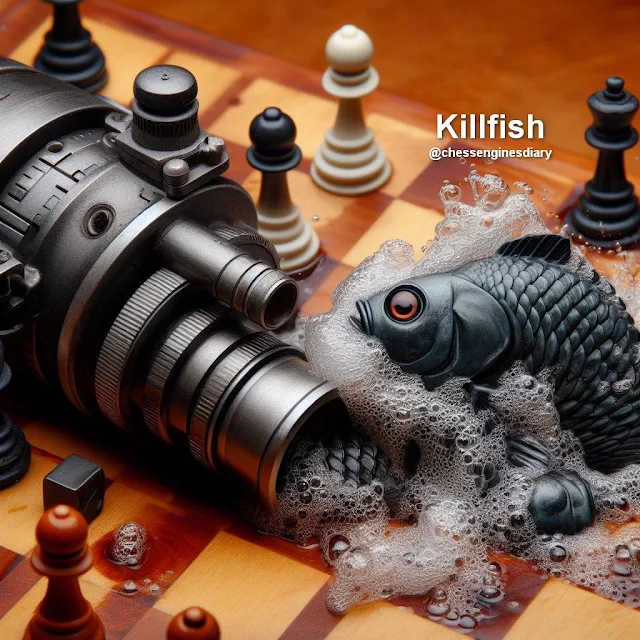Killfish, a free and strong UCI chess engine. There is no CEDR ranking yet, the first tests of this engine will come soon.
Since you’re here...
We hope you will consider supporting us today. We need your support to continue to exist, because good entries are more and more work time. Every reader contribution, however big or small, is so valuable. Support "Chess Engines Diary" even a small amount– and it only takes a minute. Thank you.
============================== My email: jotes@go2.pl
============================== My email: jotes@go2.pl

Comments
Post a Comment